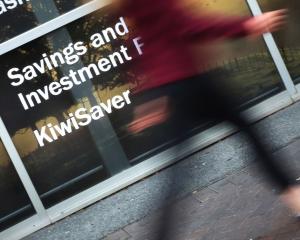The Government was worried about Solid Energy's ambitious investment plans and rosy view of coal prices as far back as 2009 but was unable to order the company to steer a safer course, Prime Minister John Key says.
Mr Key yesterday hit back at Opposition claims his Government was "asleep at the wheel" over the troubled state-owned coal company, linking its problems to the previous Labour Government's instruction for state-owned enterprises (SOEs) to look for new opportunities.
Cabinet yesterday discussed the problems at Solid Energy which last week revealed it was close to collapse under the burden of $289 million in debt, and hundreds of jobs are at risk. The company blamed low international coal prices and demand and also said a series of investments in alternative energy projects were failing to pay their way.
Mr Key said investment bank Macquarie was conducting a "forensic" analysis of the company but also revealed his Government was uncomfortable about Solid Energy's investment plans as far back as 2009.
At that point, the company approached his Government seeking a capital injection "in the order of about a billion dollars to turn this company into the [Brazilian state-owned energy company] Petrobras equivalent in New Zealand", Mr Key said.
He linked those ambitious plans to Labour SOE Minister Trevor Mallard's 2007 call for SOEs to expand into new businesses.
"I think that was the starting point at which Solid Energy started to think about what could the structure of the company look like."
But after getting advice on the company's plan, Mr Key said his Government rejected it, "but of course under the SOE Act the company had the right to draw down debt and make investments and could do that without reference to the shareholder".
While his Government made its feelings known about the company's more ambitious plans, Mr Key was unable to say what discussions were held about the subsequent investments that were made, including the Spring Creek mine, and wood pellet, biodiesel and lignite processing plants.
Despite the company being profitable and having a strong balance sheet due to high coal prices at the time it made the investments, the Government was "not as comfortable" as the company about
them.
"If you're looking at the way you would run a prudent long-term coal business then the industry experts would tell you to do it in a different way to the way the board executed that plan."
Neither former chief executive Don Elder or former chairman John Palmer, who oversaw the company's move into alternative energy investments, were available for comment yesterday.












